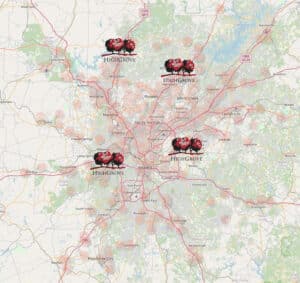It seems like everything nowadays is becoming “smart.” Our phones, cars, TVs, and even houses are all “smart.”
So I guess I shouldn’t be surprised or afraid when my landscaper tells me I should consider using a “smart controller” for my irrigation system.
So what is it that makes it so “smart” anyway, and why is my old irrigation controller considered “dumb”?
You see, I’ve grown attached to my old irrigation controller because we spend so much time together. I constantly check on him and adjust his times to ensure I’m not overwatering or under-watering.
Well, that is what makes smart irrigation controllers “smart”; they are technologically advanced enough to determine on their own whether or not my landscape needs watering, and if so, how much. This can not only save me a lot of time but money as well, by only irrigating when plants really need it.
How Smart Controllers Work
No matter how efficient a traditional irrigation controller’s watering schedule is, it cannot take into account changing weather conditions and adjust the watering schedule automatically.
Smart controllers base their watering schedule upon evapotranspiration (ET). ET is the amount of water lost from the soil through evaporation plus the water used by the plant, both of which are dramatically affected by changing weather conditions.
Smart controllers determine how much ET has occurred and replaced only the water that the plant needs.
This specialized irrigation controller uses weather information and site conditions to determine how much water to apply and when to irrigate. Some of these controllers use a combination of historic and on-site weather data to assess these needs.
Another kind of irrigation controller uses a subscription service that downloads ET needs daily. Others rely on soil moisture sensors buried in the ground to determine the irrigation schedule. Finally, another kind of irrigation controller even uses a combination of these three methods.
Why It’s Smart
Smart controllers are smart because of the technology involved in the way they function and because it only waters when plants need watering.
Water conservation is critical, with only two percent of the Earth’s water supply is fresh water. And water costs are going to continue to rise.
Tests by the International Center for Water Technology at California State University – Fresno have shown smart controllers can save up to twenty-five percent more water than traditional controllers.
Traditional controllers tend to err on the side of overwatering to ensure plants do not die, but overwatering is a leading cause of problems with ornamental plants. Also, the cost associated with treating and replacing plants is much more expensive than the water itself.
If you want to learn more about smart irrigation and how to manage your water in a more effective way on your metro-Atlanta property, give our experts at HighGrove Partners a call at (678) 298-0550 or use our simple contact form.





